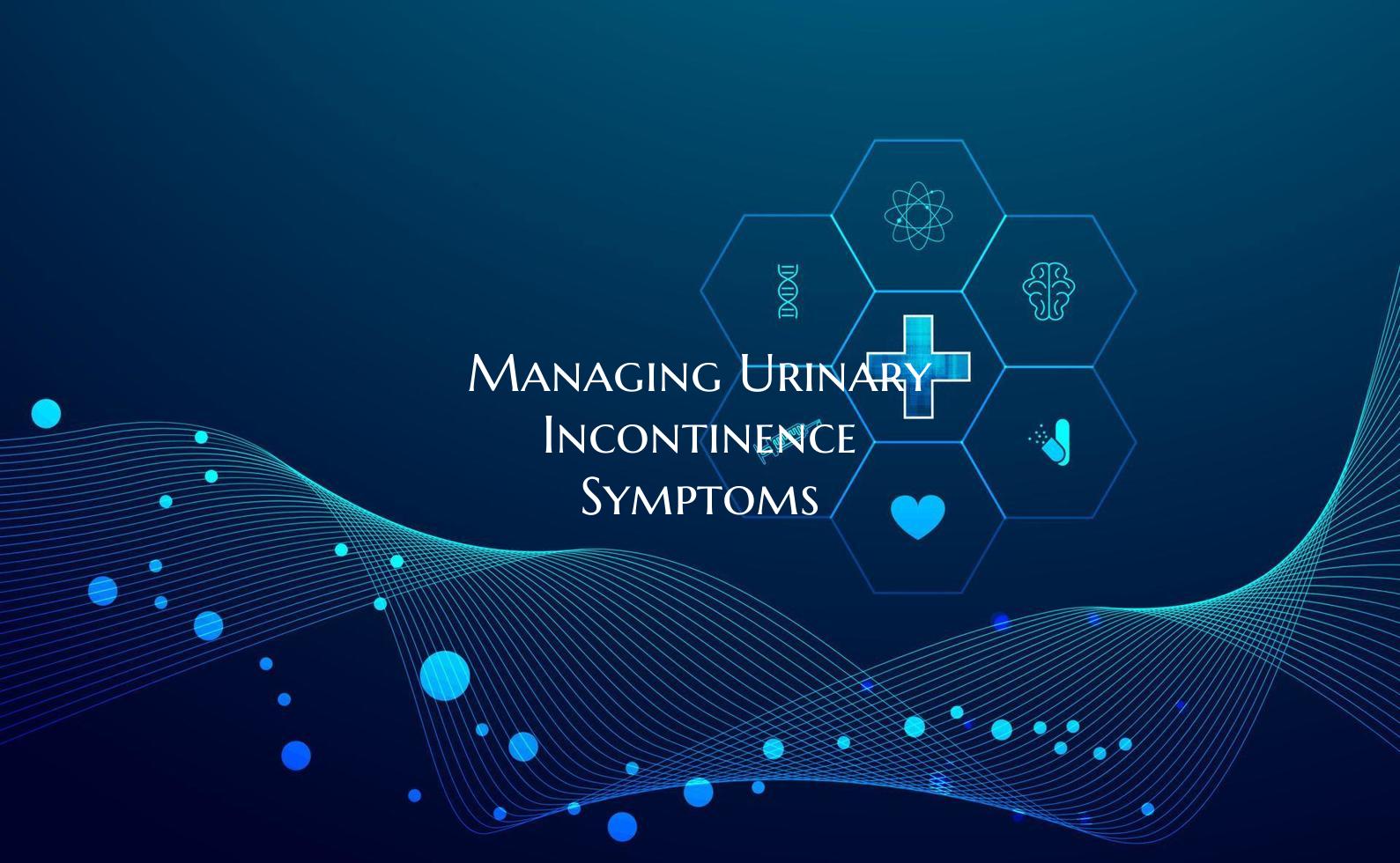
Managing Urinary Incontinence Symptoms
Urinary incontinence is a common condition that can significantly impact one's quality of life. Whether you experience occasional leaks or a more severe form of incontinence, managing the symptoms effectively is essential for maintaining your physical and emotional well-being. Here are some strategies and tips to help you manage urinary incontinence symptoms:
1. Stay Hydrated: It may seem counterintuitive, but staying hydrated is crucial for managing urinary incontinence. Dehydration can irritate the bladder, making symptoms worse. Drink plenty of water throughout the day, but be mindful of avoiding caffeine and alcohol, as these can irritate the bladder and worsen symptoms.
2. Kegel Exercises: Kegel exercises are often recommended to strengthen the pelvic floor muscles, which can help improve bladder control. To do Kegels, identify the muscles you use to stop the flow of urine, then contract and hold them for a few seconds before releasing. Aim to do several sets of Kegels throughout the day to strengthen these muscles over time.
3. Lifestyle Modifications: Certain lifestyle changes can help manage urinary incontinence symptoms. This includes maintaining a healthy weight, as excess weight can put pressure on the bladder. Avoiding constipation is also important, as straining during bowel movements can weaken pelvic floor muscles. Quitting smoking is recommended, as smoking can irritate the bladder.
4. Bladder Training: Bladder training is a technique that involves gradually increasing the time between bathroom breaks to train your bladder to hold urine for longer periods. Start by urinating at set intervals and gradually increase the time between bathroom visits. Over time, this can help improve bladder control and reduce leakage.
5. Use Absorbent Products: In cases where urinary incontinence is more severe, using absorbent products such as pads, liners, or adult diapers can help manage leaks and accidents. These products provide a sense of security and can help you feel more confident when out and about.
6. Medical Treatment: If lifestyle changes and home remedies are not sufficient to manage urinary incontinence symptoms, it is important to seek medical advice. Your healthcare provider can conduct a thorough evaluation to determine the underlying cause of incontinence and recommend appropriate treatment options, such as medications, physical therapy, or in some cases, surgery.
7. Emotional Support: Dealing with urinary incontinence can be emotionally challenging. It is essential to seek emotional support from friends, family, or a support group to help cope with the physical and emotional aspects of living with incontinence. Remember that you are not alone, and seeking support can help you navigate this condition more effectively.
By implementing these strategies and seeking professional guidance when needed, you can effectively manage urinary incontinence symptoms and improve your overall quality of life. Remember that with patience, persistence, and the right support, you can find ways to effectively manage this condition and live a fulfilling life.